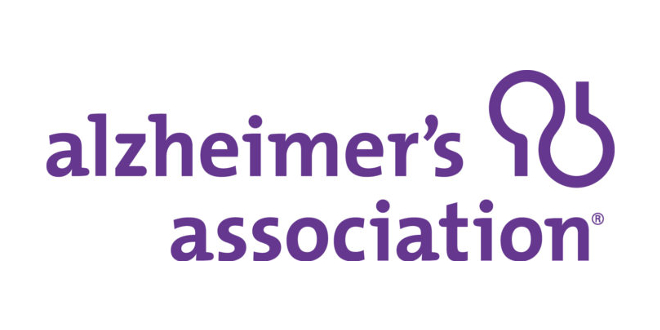Indianapolis, IN, March 2, 2021 – Findings from the Alzheimer’s Association 2021 Alzheimer’s Disease Facts and Figures report reveal that discrimination is a barrier to Alzheimer’s and dementia care, and that the COVID-19 pandemic is causing an increase in deaths from Alzheimer’s and dementia – both in Indiana and nationwide.
Impact of COVID-19
The report examines the devastating impact the COVID-19 pandemic is having on people living with Alzheimer’s. Nationwide, there were at least 42,000 more deaths from Alzheimer’s and other dementias in 2020 compared with averages over the previous five years – a 16% increase.
In Indiana there were 870 more deaths from Alzheimer’s and dementia in 2020 than compared to averages over the past five years – a 14% increase.
The report highlights preliminary and anecdotal data indicating the COVID-19 pandemic is also having adverse effects on many family caregivers. It notes that pandemic-related caregiving challenges, including the shutdown of adult day care centers and the inability of families to visit or communicate with relatives in long-term care settings have caused “emotional distress and other negative outcomes among caregivers.”
“While more study is needed to understand the exact reasons why deaths attributable to Alzheimer’s and dementia during the pandemic have increased so dramatically, we do know individuals living with Alzheimer’s, particularly those living in long-term care settings, are extremely vulnerable,” said Natalie Sutton, executive director, Alzheimer’s Association Greater Indiana Chapter. “Challenges stemming from the pandemic, including reduced access to healthcare and the impact of social isolation, may have accelerated the decline among some people with dementia.”
Continued Sutton, “When it comes to caregivers, these findings are consistent with what we have heard from so many families during the last year – that this pandemic has been enormously difficult.”
The Greater Indiana Chapter is offering a special program March 31 with tips for dementia caregivers who are struggling as a result of COVID-19, as well as information on the vaccine in Indiana. Registration is free and available at alz.org/indiana/Helping_You.
Race, Ethnicity and Alzheimer’s in America
For the first time, the accompanying special report, “Race, Ethnicity and Alzheimer’s in America,” examines perspectives and experiences of Asian, Black, Hispanic, Native and White Americans in regard to Alzheimer’s and dementia care.
Findings from two national surveys reveal that non-White racial/ethnic populations expect and experience more barriers when accessing dementia care, have less trust in medical research and are less confident that they have access to health professionals who understand their ethnic and racial background and experiences. Among the findings:
- Two-thirds of Black Americans (66%) believe it is harder for them to get excellent care for Alzheimer’s disease or other dementias. Likewise, 2 in 5 Native Americans (40%) and Hispanic Americans (39%) believe their own race or ethnicity makes it harder to get care, as do one-third of Asian Americans (34%).
- Nearly two-thirds of Black Americans (62%) believe that medical research is biased against people of color — a view shared by substantial numbers of Asian Americans (45%), Native Americans (40%) and Hispanic Americans (36%) as well. Only half of Black Americans (53%) trust a future cure for Alzheimer’s will be shared equally regardless of race, color or ethnicity.
- Fewer than half of Black (48%) and Native Americans (47%) feel confident they have access to providers who understand their ethnic or racial background and experiences, and only about 3 in 5 Asian Americans (63%) and Hispanics (59%) likewise feel confident.
“Despite ongoing efforts to address health and health care disparities in Alzheimer’s and dementia care, survey results show there is still a lot of work to be done,” said Carl V. Hill, Ph.D., MPH. chief diversity, equity and inclusion officer, Alzheimer’s Association. “Clearly, discrimination, lack of diversity among health care professionals and mistrust in medical research create significant barriers to care and demand the country’s full attention.”
Episodes of discrimination, however, extend beyond Alzheimer’s and dementia care, the Alzheimer’s Association surveys found that many non-White Americans say they have experienced discrimination in the broader health care system. Specifically, half of Black Americans (50%) report they’ve experienced discrimination when seeking health care; more than 4 in 10 Native Americans (42%) and one-third of Asian Americans (34%) and Hispanic Americans (33%) likewise report having experienced health care discrimination.
The experiences and views of discrimination expressed by respondents in both surveys are also reflected in their views on clinical trial participation. White Americans are most likely to express interest (82%), followed by Native Americans (81%), Hispanic Americans (78%), Asian Americans (73%) and lastly, Black Americans (67%).
The most common reason cited for not participating in clinical trials among all racial/ethnic groups is not wanting to be a “guinea pig.” This sentiment was especially strong among Black Americans (69%). In addition almost half of Black Americans (45%) worry that treatments might cause sickness. They are also twice as likely as other groups to say they “don’t trust medical research.” And they are more than twice as likely as other racial or ethnic groups to say they “might not be treated fairly.”
As noted in the 2021 Facts and Figures report, health and socioeconomic disparities and systemic racism contribute to increased Alzheimer’s and dementia risk in communities of color. According to the report, older Blacks and Hispanics are also disproportionately more likely to have Alzheimer’s and other dementias. In addition, both groups are more likely to have missed diagnoses than older whites.
2021 Alzheimer’s Disease Facts and Figures: At a Glance
Prevalence, Incidence and Mortality
- An estimated 6.2 million Americans age 65 and older are living with Alzheimer’s dementia in 2021. This includes approximately 110,000 Hoosiers.
- More than 1 in 9 people (11.3%) age 65 and older has Alzheimer’s dementia.
- Two-thirds of Americans over age 65 with Alzheimer’s dementia (3.8 million) are women.
- Deaths due to Alzheimer’s between 2000 and 2019, has more than doubled, increasing 145%.
- 1 in 3 seniors dies with Alzheimer’s or another dementia.
Caregiving
- In 2020, more than 11 million caregivers of people with Alzheimer’s or other dementias provided an estimated 15.3 billion hours of unpaid care, a contribution to the nation valued at $257 billion.
- Nearly half of all caregivers (48%) who provide help to older adults do so for someone with Alzheimer’s or another dementia.
- Approximately two-thirds of caregivers are women, and one-third of dementia caregivers are daughters.
- Forty-one percent of caregivers have a household income of $50,000 or less.
Additional data from the report is included below. Full text of the 2021 Alzheimer’s Disease Facts and Figures report, including the accompanying special report, “Race, Ethnicity and Alzheimer’s in America,” can be viewed at alz.org/facts. The report will also appear in the March 2021 issue of Alzheimer’s & Dementia: The Journal of the Alzheimer’s Association.
Updated Alzheimer’s Statistics
The Alzheimer’s Association Facts and Figures report also provides an annual look at the latest national statistics and information on Alzheimer’s prevalence, incidence, mortality and morbidity, costs of care and caregiving, both nationally and state-by-state.
About 2021 Alzheimer’s Disease Facts and Figures
TheAlzheimer’s Association 2021 Alzheimer’s Disease Facts and Figures report is a comprehensive compilation of national statistics and information on Alzheimer’s disease and related dementias. The report conveys the impact of Alzheimer’s on individuals, families, government and the nation’s health care system. Since its 2007 inaugural release, the report has become the preeminent source covering the broad spectrum of Alzheimer’s issues. The Facts and Figures report is an official publication of the Alzheimer’s Association.
About the Survey
Versta Research conducted two surveys on behalf of the Alzheimer’s Association: (1) U.S. adults and (2) current or recent caregivers of adults age 50 or older with cognitive issues. Respondents were asked about access to care and support services, trust in providers and the health care system, participation in clinical trials and research, and caregiver experiences. Surveys were conducted October 26 – November 11, 2020. Data was collected by NORC at the University of Chicago via the AmeriSpeak® panel. AmeriSpeak is a probability-based panel of all U.S. households.
The survey included 945 White respondents. Oversamples of Hispanic (n=541), Black (n=515) and Asian Americans (n=412) were weighted back to their true population proportions for statistical analysis and reporting. For full inclusion of Native Americans, the same survey was administered to an additional sample of 406 Native Americans recruited through online (non-probability) panels with sampling stratified and data weighted on gender, age, income and education to match U.S. Census Bureau data. The surveys were offered in both English and Spanish. For complete details regarding survey methodology, see page 73 of the report.
About the Alzheimer’s Association
The Alzheimer’s Association leads the way to end Alzheimer’s and all other dementia – by accelerating global research, driving risk reduction and early detection, and maximizing quality care and support. Our vision is a world without Alzheimer’s and all other dementia. For more information, visit alz.org or call the 24/7 Helpline at 800.272.3900.






